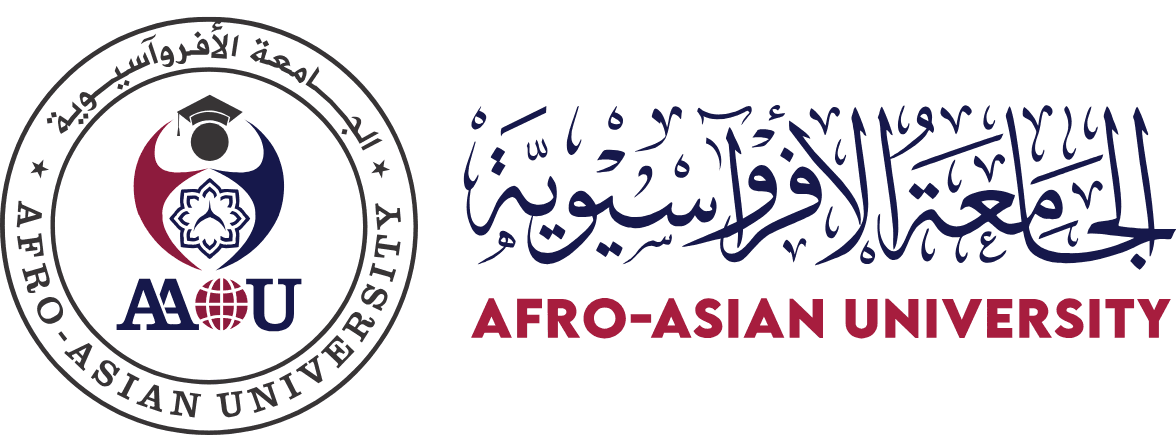Department of Special Education
- Home
- »
- Faculties
- »
- Faculty of Education
- »
- Department of Special Education
About
The Department of Special Education at Afro Asian University focuses on preparing educators and specialists to support individuals with diverse learning needs. It offers a comprehensive curriculum covering topics such as disability studies, assessment, instructional strategies, and assistive technology. Through hands-on experiences, research opportunities, and collaboration with various stakeholders, students gain the knowledge and skills needed to advocate for inclusive education and empower individuals with disabilities. Graduates pursue careers as special education teachers, behavior analysts, therapists, administrators, and advocates, making a significant impact in the field of special education.
- Learning Outcomes
- Career Opportunities
The Department of Special Education at Afro Asian University aims to equip students with the knowledge, skills, and competencies necessary to excel in the field of special education. Some of the learning outcomes typically associated with this department may include:
Understanding of Special Needs: Students should gain a comprehensive understanding of the various types of disabilities and exceptionalities, including intellectual disabilities, learning disabilities, autism spectrum disorders, emotional and behavioral disorders, and physical disabilities.
Assessment and Individualized Education Planning: Students should learn to conduct comprehensive assessments to identify students’ strengths, needs, and areas requiring support. They should also be able to develop and implement Individualized Education Plans (IEPs) tailored to meet the unique needs of each student.
Effective Instructional Strategies: Students should be proficient in implementing evidence-based instructional strategies and interventions to support the academic, social, emotional, and behavioral development of students with disabilities.
Collaboration and Communication: Students should develop effective communication and collaboration skills to work collaboratively with students, families, educators, and other professionals involved in the education and support of individuals with disabilities.
Legal and Ethical Considerations: Students should have a strong understanding of the legal and ethical principles governing special education, including laws such as the Individuals with Disabilities Education Act (IDEA) and Section 504 of the Rehabilitation Act, as well as ethical guidelines for working with individuals with disabilities and their families.
Assistive Technology and Universal Design: Students should be familiar with assistive technology tools and strategies that can enhance access to learning and promote independence for individuals with disabilities. They should also understand the principles of universal design for learning to create inclusive learning environments.
Advocacy and Social Justice: Students should develop a commitment to advocacy and social justice for individuals with disabilities, advocating for their rights, inclusion, and equitable access to education and community resources.
Graduates from the Department of Special Education at Afro Asian University have various career opportunities available to them. Some potential career paths include:
Special Education Teacher: Work in schools or specialized programs to provide instruction and support to students with disabilities.
Behavior Analyst: Use principles of applied behavior analysis to assess, develop, and implement behavior intervention plans for individuals with behavioral challenges.
Rehabilitation Counselor: Assist individuals with disabilities in setting and achieving vocational, educational, and independent living goals.
Special Education Administrator: Lead and manage special education programs within schools or districts, ensuring compliance with regulations and providing support to staff and students.
Speech-Language Pathologist: Assess and treat individuals with communication disorders, including speech, language, and swallowing difficulties.
Occupational Therapist: Help individuals with disabilities develop or regain skills needed for daily living and work activities.
Disability Advocate: Work with advocacy organizations or government agencies to promote the rights and inclusion of individuals with disabilities in society.
Assistive Technology Specialist: Evaluate, recommend, and implement assistive technology devices and services to enhance the independence and participation of individuals with disabilities.
Education Consultant: Provide professional development, training, and support to educators and organizations on best practices for serving students with diverse learning needs.
Researcher: Conduct research studies to advance knowledge in the field of special education and contribute to evidence-based practices.
